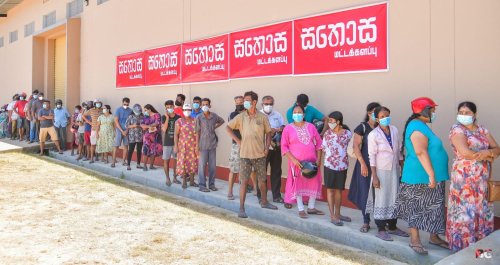
Despite ongoing criticism of their involvement in civilian affairs in the North-East, the Sri Lankan state continues the expansion of the state owned large retail chain, Sathosa with the opening of a store in Batticaloa.
Under the guidance of the Minister of Trade, Bandula Gunawardena, the state aims to set up Sathosa outlets that are “easily accessible to the public” and deliver “cheaper and higher quality products to consumers” with government intervention “during the current emergency situation in the country,” according to the Colombo page.
On Tuesday, the controversial emergency regulation was passed in response to Sri Lanka's food shortages that enabled the military to seize stock from traders, who they alleged are hoarding stock, and transfer them into state establishments where they will be sold at government-mandated prices.
Consequently, the trade minister stated that another 100 Sathosa outlets would be opened across the country before the end of the year.
The US's State Department has criticised the Sri Lankan military and government's ongoing land grabs and business takeovers.
“The land acquisition law (Land Acquisition Act of 1950) empowers the government to take private land for public purposes with compensation based on a government valuation. Still, there have been reported cases of the military taking over businesses in the North and East part of the country, by claiming they were on government land, with little or no compensation” their report notes.
The state's position in maintaining farms and businesses limits local economic development and leave the Tamil population unable to sustain themselves independently.
However government officials including agricultural minister, Mahindananda Aluthgamage, have denied that the state of emergency was an act of militarisation claiming that it was solely done for the provision of essential goods at a reasonable price.
We need your support
Sri Lanka is one of the most dangerous places in the world to be a journalist. Tamil journalists are particularly at threat, with at least 41 media workers known to have been killed by the Sri Lankan state or its paramilitaries during and after the armed conflict.
Despite the risks, our team on the ground remain committed to providing detailed and accurate reporting of developments in the Tamil homeland, across the island and around the world, as well as providing expert analysis and insight from the Tamil point of view
We need your support in keeping our journalism going. Support our work today.
For more ways to donate visit https://donate.tamilguardian.com.

